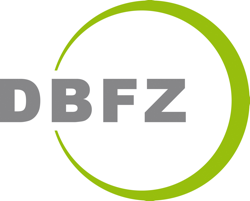Publication: DBFZ publishes Report about the energetic pathways for micro-algae
As part of a joint research project, the Lausitz University, the Technical University of Freiberg and the German Biomass Research Centre (DBFZ) have studied and assessed several potential material and energy use pathways for micro-algae. The goal was to specifically investigate the utilization of microalgae produced from flue gas of the facilities of Vattenfall. The final report of the project is now available online as DBFZ-Report 16 (www.dbfz.de) or as print version.
Several algae production plants in Germany and worldwide are already running or under construction. There is a huge research on the right production pathways. What often is missing is a specific research on the utilization of the produced algae and its comparison - especially when the algae are produced from flue gas. The DBFZ-Report “Algae Biorefinery – Material and energy use of algae” gives a detailed overview on existing processes for an energetic utilization of microalgae.
Algal biomass may be converted into energy by a variety of different means. A wide range of different conversion technologies are available for this purpose. They include physical, thermo-chemical, biochemical and biological treatments to create energy-rich products from the source biomass. In the report published mainly thermo-chemical conversion treatments like hydrothermal processes (liquefaction (HTL) and carbonization (HTC)), gasification and hydrogenation are investigated. Beside that the application of micro-algae as a substrate for biogas plants, for biodiesel production and as animal feed is researched too. An energy balance is conducted for the Processes Biodiesel, Biogas, HTC, HTL and direct hydrogenation. To achieve specific results, the algae Chlorella vulgaris, Scenedesmus obliquus and Selenastrum rinoi were examined for their energetic potential in the investigation. As a result, the report shows, that in general several pathways are possible, but great differences exist concerning the state of development and the energy efficiency of the processes.
The german version will be published shortly by the University of Freiberg.
Smart Bioenergy – innovations for a sustainable future
The DBFZ works as a central and independent thinker in the field of energy and material use of biomass on the question of how the limited available biomass resources can contribute to the existing and future energy system with sustainability and high efficiency. As part of the research the DBFZ identifies, develops, accompanies, evaluates and demonstrates the most promising fields of application for bioenergy and the especially positively outstanding examples together with partners from research, industry and public. With the scientific work of the DBFZ, the knowledge of the possibilities and limitations of energy and integrated material use of renewable raw materials in a biobased economy as a whole should be expanded and the outstanding position of the industrial location Germany in this sector permanently secured – www.dbfz.de/en.
